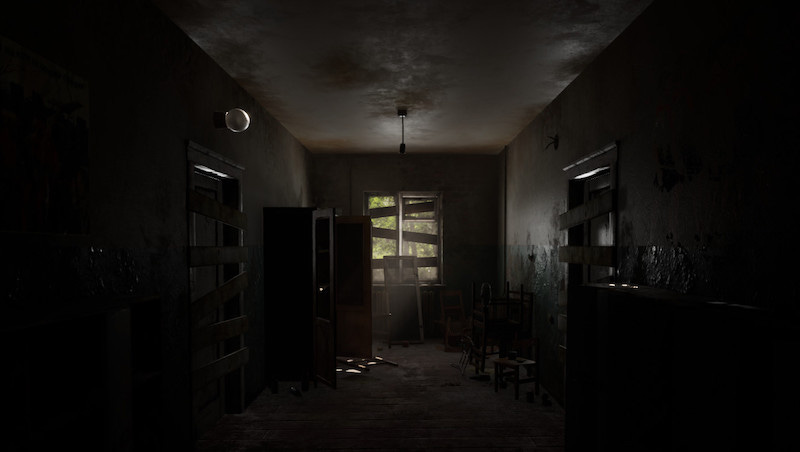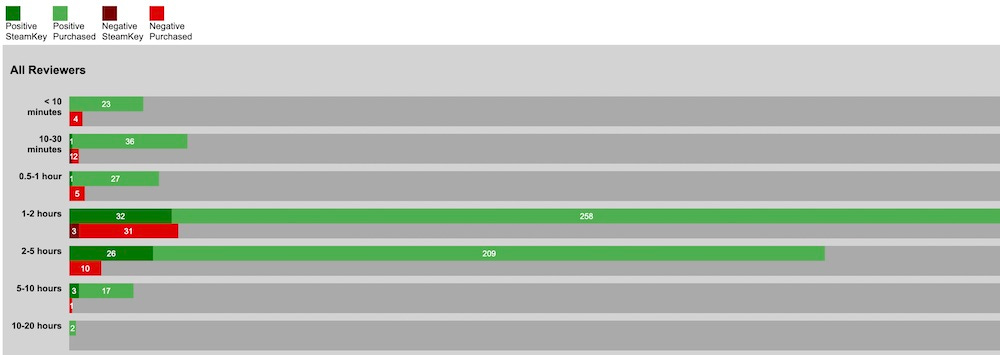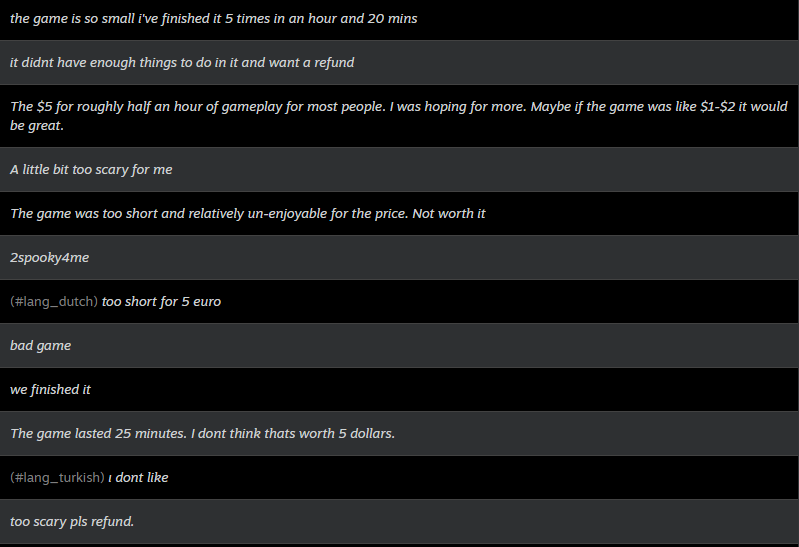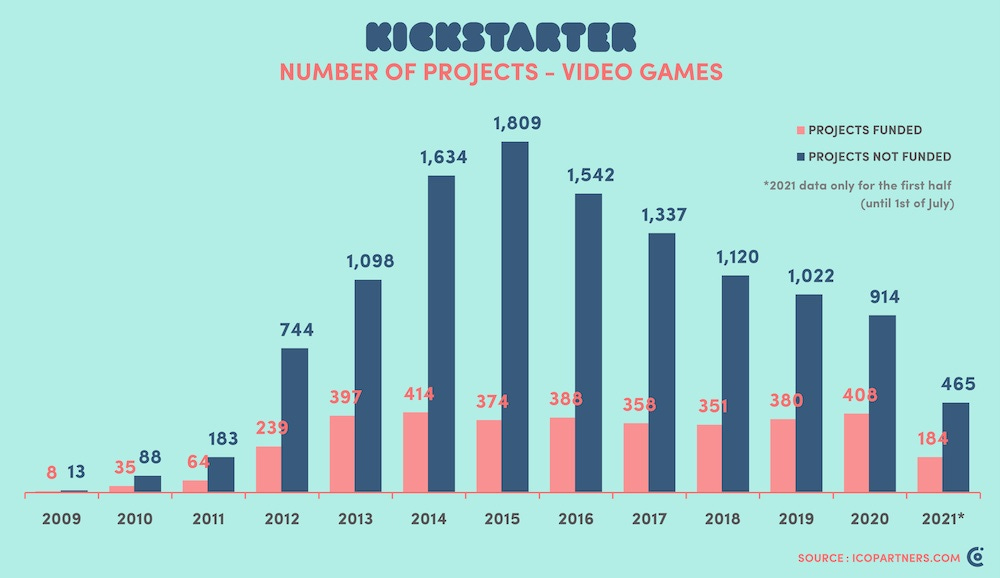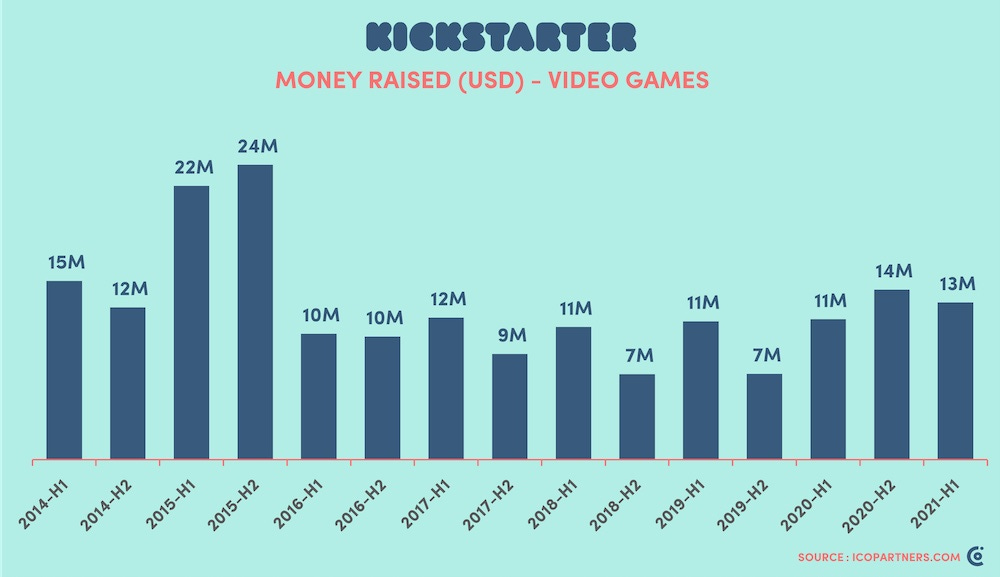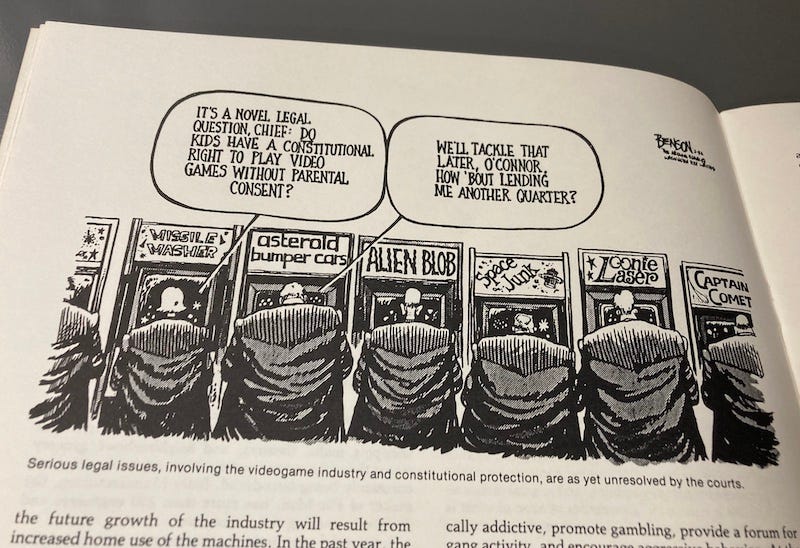Steam refund worries, Kickstarter trends & more!
Publikováno: 2.9.2021
What's to worry about?
[The GameDiscoverCo game discovery newsletter is written by ‘how people find your game’ expert & GameDiscoverCo founder Simon Carless, and is a regular look at how people discover and buy video games in the 2020s.]
Continuing the ‘packed end of summer’ theme, kids are back in school, folks are finishing up their games to debut before the end of the year (or delaying until 2022, in many cases!) But the game discovery news just doesn’t quit. So let’s see what’s up this time?
Before we get going, one final reminder on our new survey: if you’ve released a Steam game in 2019 or sooner, spend 5 minutes filling out our new Steam survey before next Monday, Sept. 6th - a slightly extended deadline. We’ll be using the data for good - with public analysis available here for free!
[If you want to support us, plz sign up for a GameDiscoverCo Plus paid subscription - only $12 a month if you get a year, and includes an info-filled Discord, a data-exportable Steam Hype back-end for ranking/comparing unreleased games, our new eBook, & lots more - join up!]
Steam & refunds for short games - what’s up?
So, you may have seen a viral post last week from the Russian developer of Summer of ‘58, Emika Games, who posted on Twitter with the following message:
As you might expect, this set off a plethora ofnews posts about the issue, because it tied in to a couple of trends that people already had in their heads: ‘short games don’t do well on Steam’, and ‘people take advantage of 2-hour refunds on Steam games’. And you can certainly run the story swiftly as ‘yep, the dev said this, it’s bad!’
Just looking at Summer of ‘58 for a second, Toge Productions’ ‘reviews by length of time played’ tracker does indeed show the majority of reviewers had played the game for less than 2 hours (though not many of the reviewers had refunded):
But what was Summer Of ‘58’s actual refund rate? When researching this article, I even noticed a video from the UK’s Independent website which says “the majority of those who played indie game Summer of 58 refunded it after completing it”.
We tried reaching out to the dev on Twitter to ask about his precise refund rate, but he never replied. However, somebody on social media spotted that he posted in Russian language that his refund rate was “something like 30%” across all of his games. So that’s the closest we’ll get for now.
And I’m not doubting that the game or his portfolio may have a significant refund rate. Just to set a baseline here, we did an article on refund rates last year, and said that for a portfolio we had access to, “average monthly refund rate by unit across the portfolio ranged between 5% and 8%. Actual dollar refund rate varied between 6.5% and 11%. (Refunds from higher-priced countries skew the dollar refund rate upwards.)”
But as we noted: “just looking at raw units, the highest recent refund rate for a game [in this portfolio] during a 1-month period was around 17%, and the lowest was around 3%.” So I think that’s the first point - refund rates can change a lot, and at their highest can be towards 20% or even more.
We do feel like sentiment moved swiftly towards ‘Steam sucks, because all short games get refunded a lot’, though. And from what we can tell, this isn’t true. For example, David Syzmanski (A Wolf In Autumn) commented“my experience releasing short games (which was admittedly years ago now) was that my refund rates were still lower than what we see even with games like Dusk.”
And Eric Juvi added: “I released a short game [Stars Die] on Steam on December 2020 and refunds are almost non-existent. The system could be abused, but players choose not to. Not sure what's going on with that game in particular.” We’re also aware of multiple popular recent ‘shorter game’ releases with refunds within the percentages we referenced last year (so, single digits).
So what, short games don’t get refunded more? It’s also not quite as easy as that - Crossy Road creator Andy Sum posted some Steam refund messages from his short horror game The Watson-Scott Test, noting: “it costs $5 full price, and the description says it’s 20 minutes [long].”
This would be a situation where refunds would rocket up, right? We asked Andy what his Steam refund rate was, and he told us it was 10.7% by number of units. This is definitely somewhat above average - but nothing like the numbers many might expect, given those refund messages.
What accounts for the large discrepancies in refund rates for Emika Games’ titles, and what can/should we do about it? One possibility: if your game is a single-play title which finishes within the refund window, the feeling you leave players with can be very important.
And if you look at a playthrough of Summer of ‘58 (walkthrough below, please buy the game if you want to play it!) you’ll discover it ends very abruptly, after 65 minutes, with a ‘TO BE CONTINUED’ graphic. So for those tempted to refund, you’re definitely given a giant ‘this is done’ signal - without a clear end to the story:
So sure, you can concentrate on the feeling you give players at the end of a short game. (Though there’s an argument that, if you don’t artistically want to give players a sense of finality, why should you be penalized?)
I do also wonder whether 3D jumpscare horror games that are shown to a super-wide YouTube audience - which Summer of ‘58 clearly is - attracts younger, more casual players. They may be more apt to refund due to maturity - or simply cashflow - reasons.
So we shouldn’t doubt the dev’s statements. But just noting that even at 25-30% refunds, you’re still getting 70-75% of the revenue. So I don’t know that refunds alone are normally a reason to quit making games. Honestly, Summer of ‘58 was doing pretty well in terms of reviews and had a lot of streamers picking it up?
And… the game is doing even better now! Saying how badly you are doing can sometimes spike sales. For example, Brigador picked up a lot of interest after being public about their issues. Similar things are happening here for this game, which was - after all - a well-crafted jumpscare fest.
Concluding: most short games don’t have the apparent sky-high refund rates of Summer of ‘58. But we suspect very short (<90 minute) games have somewhat above-average refund rates in aggregate - which is compounding what is already a tough commercial pitch. (But: it’s the ‘people don’t generally want to buy short games’ issue which is a much bigger issue than the refund issue?)
And we do think the ability to refund is a good, consumer-friendly thing for Steam to do. But Steam refunds are used by certain sectors of the audience to get their money back in circumstances that wouldn’t be acceptable to most other ‘you pay money for something’ situations. And that’s not great. So… it’s complicated?
Kickstarter & video games: what’s up in 2021?
So, ICO’s Thomas Bidaux has posted his latest half-yearly look at the state of Kickstarter and board/video games. You’ll get a basic idea for video games if you look above. (The 2021 numbers only includes H1, so should roughly double by the end of the year.)
There’s never been a rise in successful Kickstarters commensurate with the rise in the number of video games available on the market. (The pink bar is the number of successfully funded KSes.) I think that’s because:
the chief distribution method for games is non-physical (way less attractive)
a lot of game devs who try Kickstarter seem to be first-time, so have less name recognition or IP/pedigree to lean on
there are plenty of ways for games to do community outreach via Discord and other platforms that aren’t complex money-raising with tricky deliverables.
there’s been a lot of poorly scoped, very late or cancelled Kickstarters in the video game space in particular - my view, having backed a few of them.
If you look at the board game side of Kickstarter in Thomas’ article (physical, expensive, limited edition, fully designed when it launches), it’s going off like a rocket. The sector is really a true match for Kickstarter’s strengths - $146 million raised in the first half of 2021. Here, conversely, are the video game totals:
What’s interesting is that the ‘revenue raised’ totals for each half have stayed pretty steady for the last few years (and even ticked up slightly!) So it’s not as if this whole thing is fading out.
But the ratio of successful to unsuccessful Kickstarters is gradually improving - so perhaps the people who are trying are just more suitable, better prepared, or set more sensible goals?
To end, Thomas was kind enough to exclusively give us his list of the Top 10 video game Kickstarters of H1 2021 (converted to USD). It’s great to check trends or best practices (and yep, Friday Night Funkin’ was massive before the Kickstarter, haha):
Friday Night Funkin': The Full Ass Game ($2,247,641)
Coral Island - reimagining the farm sim game ($1,639,369)
Roots of Pacha - farm in the stone age with friends ($355,388)
Skyclimbers - A Multiplayer City Building Action RPG ($340,721)
Worship - a cultist themed multiplayer roguelike game ($309,000)
Ova Magica - An adorable farming and monster taming game! ($258,188)
UNBEATABLE - A game where music is illegal and you do crimes ($267,403)
GHOSTS - The Real-Time FMV Horror Game by Jed Shepherd ($251,959)
OddFauna - Secret of the TerraBeast ($243,948)
Mask of the Rose: a Fallen London romance ($235,630)
Some interesting stuff in there - I thought farming and city building were a big thing, but perhaps not quite as big a thing as the Top 10 would imply! (And also notable to see two music games in there, given the genre has been commercially unwell.)
The game discovery news round-up..
Charging down the final stretch of this newsletter, and it’s a few hours ‘til sleepytime. So let’s chunk out all the other major game platform and discovery news that’s cropped up in the last couple of days:
Somewhat out of nowhere (from a Western media perspective), South Korea has passed a bill saying Apple and Google must allow devs to use other payment systems on their App stores. And “…if tech companies fail to comply with the new law, they could face fines of up to 3 percent of their South Korea revenue.” Wasn’t expecting an entire nation to pass a bill ahead of a local state/authority!
My former colleagues at the Independent Games Festival have announced that submissions are open for the 24th annual IGF, with entries possible before October 12th. Being judged by your peers and getting an honorable mention or even nomination seems worthy - even if the discovery upsides of being an IGF finalist are medium-positive, at best.
Wolfire & friends’ latest reply to their Steam antitrust lawsuit (previously) is going hard into 'Valve runs two separate platforms' territory. Not sure any media has covered yet, but I have a couple of notable extracts in Tweet form. But are 'the Steam gaming platform' and 'the Steam Store' really separable, here? Steam the platform has workshop, achievements, and a multiplayer API. But it’s not like Apple, where the OS (platform) and the App Store are much more clearly split.
Found these comments from Double Fine’s Tim Schafer on Game Pass in a recent GI.biz interview (thx Protocol!) intriguing. He notes: “I think the value proposition now is what we can contribute to the Game Pass subscription service.” And he comments re: subscriptions: “I don't really feel like there's much of a choice about these things… You look at what happened with streaming in other media and it's just unstoppable.” I think… that’s basically true?
Microlinks: the latest Joost van Dreunen newsletter discusses blockchain & games in a particularly clear-headed way; did you check the Indie Houses stream & related Steam showcase/sale?; appreciated this profile of top streamer Pokimane, since it’s great to see the person behind the personality.
Finally, I’m on the board and do social media for the Video Game History Foundation, and we recently received a fascinating donation - the American Planning Association's 'Regulating Videogames' report from 1983-ish. It covers the video game arcade craze, and the subsequent moral panic & local regulations around where arcades were allowed to be placed and operated (!)
This 1982 cartoon from it U.S. featuring Supreme Court judge Sandra Day O'Connor & friends, because it reminded me of China’s current issues with games - the biz is often a societal scapegoat, eh?
[We’re GameDiscoverCo, a new agency based around one simple issue: how do players find, buy and enjoy your premium PC or console game? You can subscribe to GameDiscoverCo Plus to get access to exclusive newsletters, eBook and a Discord, plus interactive daily rankings of every unreleased Steam game, and more besides.]
